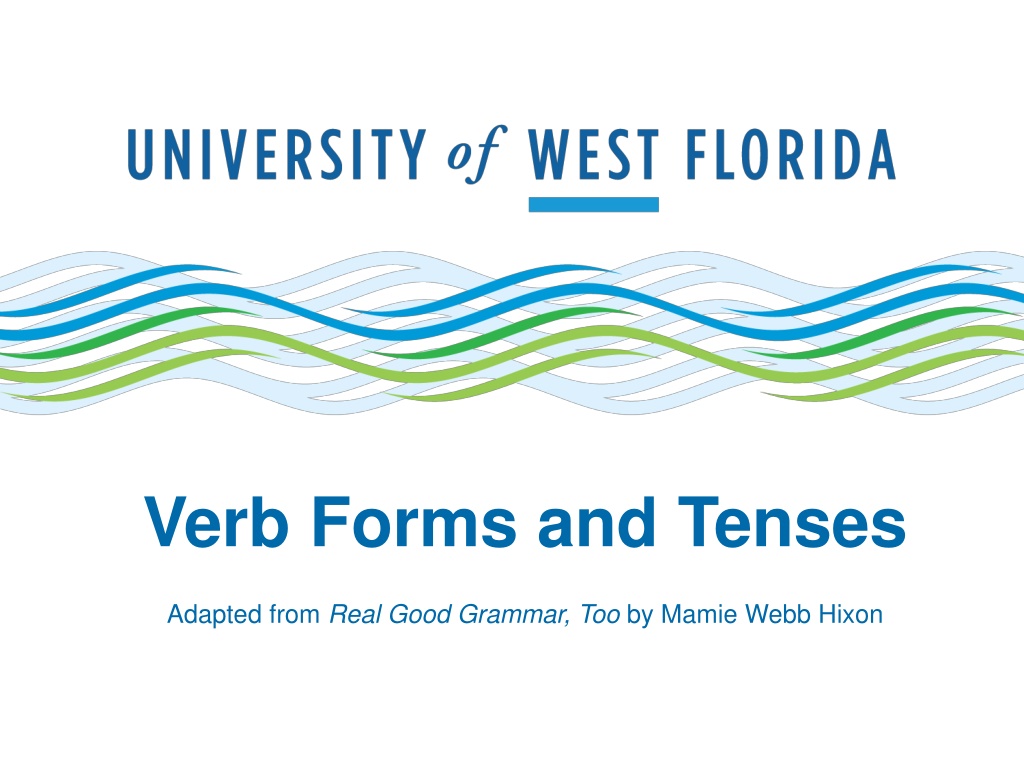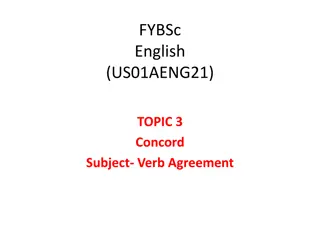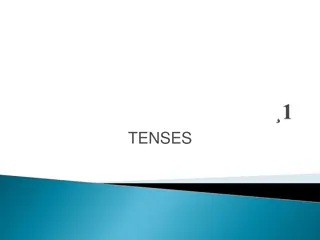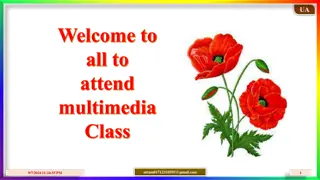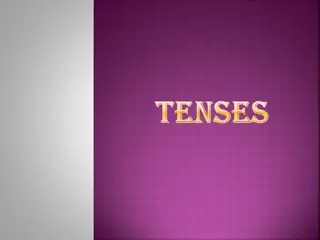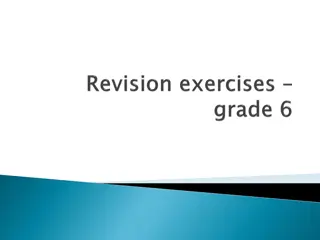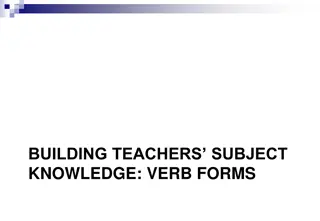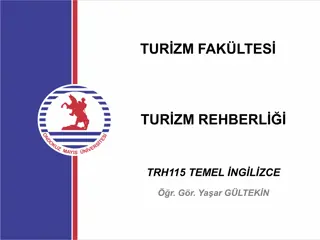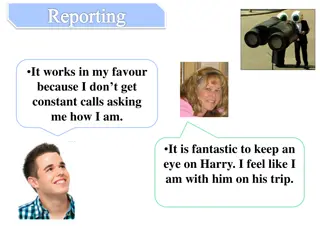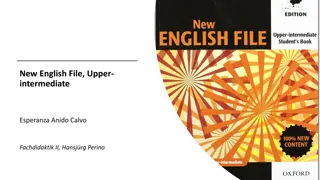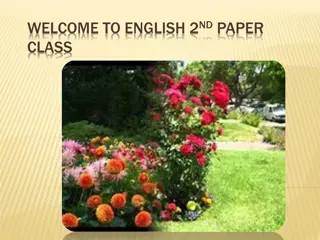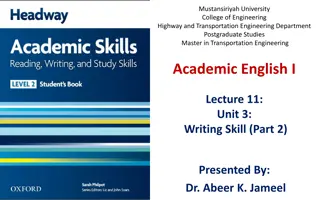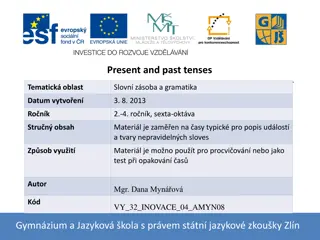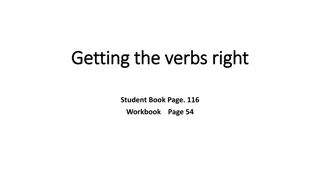Understanding Verb Forms and Tenses in English Grammar
Learn about verb forms and tenses in English grammar, including the five forms of every English verb, the differences between regular and irregular verbs, and how to use verb tenses such as present, present perfect, and present participle. Discover how to apply present tense in various contexts and use present infinitive and present perfect tense correctly.
Download Presentation

Please find below an Image/Link to download the presentation.
The content on the website is provided AS IS for your information and personal use only. It may not be sold, licensed, or shared on other websites without obtaining consent from the author. Download presentation by click this link. If you encounter any issues during the download, it is possible that the publisher has removed the file from their server.
E N D
Presentation Transcript
Verb Forms and Tenses Adapted from Real Good Grammar, Too by Mamie Webb Hixon
Verb Forms Every English verb except (to) be has five forms, which vary depending on whether the verb is regular (such as type and text ) or irregular (such as write ). The Verb Forms infinitive/bare form (to) type (to) text (to) write present (-s) types texts writes present participle (-ing) typing texting writing past (-ed) typed texted wrote past participle (-en) (have) typed (have) texted (have) written
Verb Forms and Tenses Verb tense is the ability of a verb to indicate the time at which an action takes place. Verb forms are the tools you ll use to create tenses.
Use present tense in universally true statements not limited to a particular time: The Sun is ninety-three million miles from Earth. in definitions: Hardware is the physical system of a computer. in statements about the content of literature and other published works: Hamlet appearsextremely indecisive.
Use present tense for events that are currently happening: I am really mad at Anthony. Andrea attends mass every week. now/the present the distant future the distant past am, attends the near past the near future
Use present infinitive for verbs that point to the future: I hope to complete my degree by the time we get married. She planned to earn an MBA by the end of the year. now/the present the distant future the distant past to complete, to earn hope, plan the near past the near future
Use present perfect tense for an action that began in the past but continues into the present or the future: I have lived in Pensacola all my life. She has lived in Pensacola all her life. now/the present the distant future the distant past have lived the near past the near future
Use a present participle for an action that occurs at the same time as the verb: Speedingdown the interstate, I saw a police car. now/the present the distant future the distant past speeding + saw the near past the near future
Use past tense for an earlier action: Marvin bought the car. now/the present the distant future the distant past bought the near future the near past
Use past perfect tense for an earlier action that is mentioned after a later action: Marvin bought the car that he had seen advertised online. now/the present the distant future the distant past bought had seen the near past the near future
Use future tense for an action that will be completed: I will graduate from college. now/the present the distant future the distant past will graduate the near past the near future
Use future perfect tense for an action that will have been completed at a specific future time in relation to another specific time: By 2020, I will have graduated from college. now/the present the distant future the distant past will have graduated 2020 the near past the near future
Mood Mood enables verbs to express how the speaker or writer regards the sentence. Mood can express attitudes, intentions, commands, wishes, recommendations, and possibilities.
Use subjunctive mood to express a condition contrary to fact or a wish: If I were President, I d work with Congress to protect the environment. You are not the President. You ll have to protect the environment without the help of Congress. The CFO would have been terminated a long time ago were she not the CEO s niece. The CFO is the CEO s niece, so she s still hanging around.
Use subjunctive mood to express insistence, importance, necessity, or urgency after the word that : It is important that you beon time. We demand that the company dosomething about its toxic waste. The syllabus requires that each student write a research paper. Note: Use the base form of a verb (e.g. be instead of are ) because if you use the present form the problem isn t urgent the person is already doing what you ve asked!
